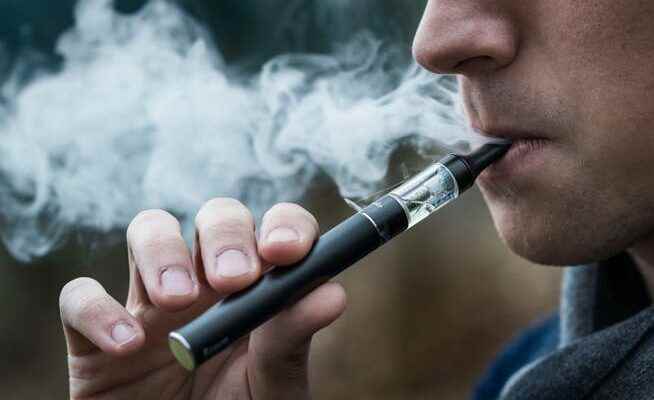New Zealand aims to be smoke free by 2025. Parliament has therefore passed a law that bans smoking for life for those born after 2008 – the only exception being e-cigarettes.
New Zealand wants to keep its boys away from cigarettes but allows them to use e-cigarettes.
New Zealand already has one of the lowest smoking rates in the world. Eight percent of adults in New Zealand smoke cigarettes every day – a historically low figure for the Pacific state. Too high for the government: It has set itself the goal of completely ridding the country of cigarette smoke by 2025.
The New Zealand Parliament passed one of the toughest laws in the world on Tuesday. This prohibits future generations from buying tobacco products from 2023. lifetime. Young people and children should not start smoking in the first place.
The ban applies to people born after January 1, 2009. The minimum age laid down in the law should also increase with each passing year. Theoretically, in fifty years’ time only people who are at least 63 years old will be able to buy cigarettes – the proportion of the population who are allowed to buy cigarettes is getting smaller and smaller.
Critics see small shops threatened
In addition to the number of legal customers, the number of sellers should also shrink. By the end of 2023, it is expected to drop from 6,000 outlets that are allowed to sell tobacco products to 600. In addition, smokers will soon only be able to buy tobacco products with a very low nicotine content. This is what the “Smokefree 2025 Action Plan” envisages.
The approved package “accelerates progress towards a smoke-free future,” Deputy Health Secretary Ayesha Verrall said in a statement. She expects billions of dollars in healthcare savings as smoking-related diseases such as cancer, heart attacks, strokes and amputations would disappear.
The liberal ACT party, on the other hand, was critical. Problems are programmed, said Deputy Chairwoman Brooke van Velden. Small shops are threatened with ruin because of the law, and consumers have to switch to the black market. “Nobody wants to see people smoke, but the reality is that some will smoke.”
However, there was no outcry from the population at the severe interference with personal rights. The New Zealanders are life in the nanny state with its many prohibitions and warnings used.
It’s not the first time New Zealand has tightened the thumbscrew on smokers. In 2004, the country was one of the first to introduce a ban on smoking in restaurants. There is a near total ban on tobacco advertising, including a ban on the display of all tobacco products at points of sale. The price for a pack of cigarettes is also the equivalent of 25 francs. The penalties for the latest litter are also hefty: under 14-year-olds who are caught buying tobacco next year will pay a fine of up to 150,000 New Zealand dollars – around 90,000 francs. With the change in the law, New Zealand ranks second behind Bhutan in the ranking of the strictest anti-smoking rules – there the sale of cigarettes has been completely banned since 2010.
The proportion of smokers has halved in the last ten years
The restrictions seem to be paying off. In the last ten years, the comparatively low proportion of smokers among the adult population in New Zealand has fallen from 18 percent by half. In comparison: in Switzerland the value is around 27 percent today, in Germany it is 24 percent.
Still, smoking is the leading preventable cause of death in New Zealand, according to Deputy Health Minister Verrall. The harm caused by smoking is particularly felt among the Maori, the country’s indigenous people, and in low-income communities. The law is therefore intended to close the gap between the life expectancy of Maori and that of non-Maori.
It is true that the smoking rate has also fallen among the indigenous population groups. Among the Maori, almost 20 percent of adults still smoke daily, with the figure being two percentage points lower than in the previous year. However, a Maori is still 2.8 times more likely to smoke than a non-Maori.
Increase in use of e-cigarettes
The assumption is that some have switched from normal to e-cigarettes. Almost 18 percent of Maori over the age of 15 state that they use the much cheaper electronic alternative on a daily basis. Four years ago it was five percent. E-cigarette consumption has also skyrocketed among the general population, doubling in the same period to 8 percent today. E-cigarettes are particularly popular among young people, whom New Zealand wants to get rid of tobacco: 23 percent use them every day – normal cigarettes only 8 percent. The New Zealand Statistical Office does not provide data for the under-15s.
E-cigarettes remain unaffected by the new restrictions. The government is promoting e-cigarettes rather than useful and inexpensive toolto stop smoking – although the data on the harmfulness is so far scant and the risk of addiction is often greater because of the higher nicotine content. The government still prefers e-cigarettes to normal ones because they are smoke-free, which is what New Zealand wants the whole country to be.
